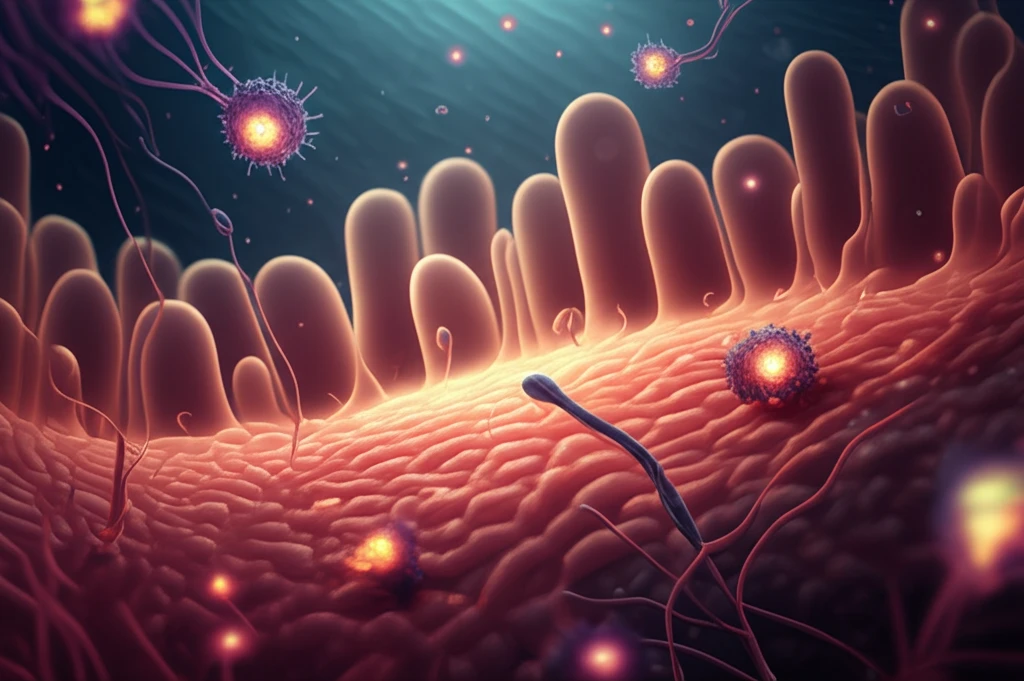
Gut Health Revolution: How R-Spondin 3 Could Change Your Life
"Discover the groundbreaking research on R-spondin 3 and its vital role in maintaining a healthy gut, potentially preventing serious conditions."
The human gut is a complex ecosystem, crucial for overall health and well-being. Maintaining its delicate balance is essential, and recent research has shed light on a key player in this process: R-spondin 3. A new study published in Nature identifies R-spondin 3 as a critical protein that regulates gastric epithelial stem cells and the homeostasis of antral glands—essential components of your stomach.
This discovery isn't just for scientists; it has significant implications for understanding how conditions like Helicobacter pylori infection can lead to gastric cancer. By understanding the role of R-spondin 3, we can explore new ways to prevent and treat common yet serious digestive issues.
Think of your gut lining as a constantly renewing surface. Stem cells within the gastric glands are responsible for this renewal. However, the signals that control these stem cells and their turnover have been unclear—until now. Researchers have begun to unravel these mysteries, clarifying the direct impact of certain factors on stem cell behavior.
R-Spondin 3: The Gut's Unsung Hero

R-spondin 3 is a protein released by gastric myofibroblasts, which are specialized cells in the connective tissue of the stomach. These myofibroblasts are strategically located beneath the glands, allowing R-spondin 3 to directly influence the stem cells within.
- AXIN2+LGR5+ cells: Located at the base of the glands.
- AXIN2+LGR5- cells: Found in the lower isthmus.
- AXIN2+LGR5+ cells were unable to repopulate glands within 7 days.
- AXIN2+LGR5- cells were more proliferative, entirely repopulating glands in the same timeframe.
What This Means for You
The discovery of R-spondin 3’s role in gut health opens new avenues for therapeutic interventions. Understanding how this protein influences stem cell behavior can lead to targeted strategies for preventing and treating gastric diseases. For instance, maintaining optimal levels of R-spondin 3 could potentially reduce the risk of H. pylori-induced gastric hyperplasia and, consequently, gastric cancer. While more research is needed, these findings offer hope for developing novel approaches to support gut health and prevent serious digestive conditions. Future studies are likely to explore how diet and lifestyle factors influence R-spondin 3 levels and activity, providing even more insights into maintaining a healthy gut.
